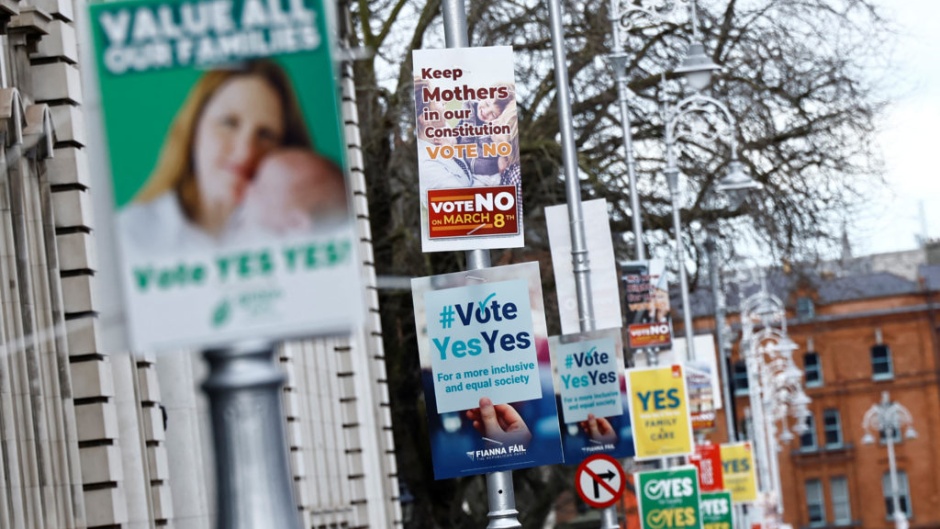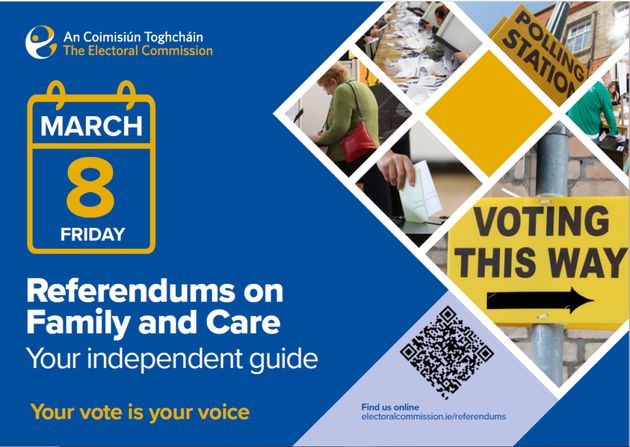Ireland rejects in referendum constitutional changes on family and women
The Evangelical Alliance encouraged believers to “vote according with their conscience and as the Lord leads them” but its director Nick Park said marriage should not be equated in the Constitution to any durable relationship.
DUBLIN · 14 MARCH 2024 · 13:10 CET

Irish voters rejected a government bid to change the country's constitution in two areas related to the family and women.
On 8 March, the government called on citizens to vote in two referendums called 'the family amendment' and 'the care amendment', on whether they wished to keep the current text of Article 41 of the Constitution of Ireland.
The family amendment
This first proposal asked to remove a reference to marriage as the basis “on which the family is founded” and replace it with a clause that says families can be founded “on marriage or on other durable relationships”.
If passed, it would have been the constitution’s 39th amendment, but with a turnout of 44.36%, it was rejected by 67.69% of voters, who voted 'no'..
The care amendment
This amendment proposed to remove women’s role in the home as a key support to the state; to delete a statement that says “mothers shouldn't be obligated by economic necessity to engage in labour to the neglect of their home duties”; and to add a clause saying the state will strive to support “the provision of care by members of a family to one another“.
The proposal involved the repeal of Article 41.2.1° and Article 41.2.2° and the insertion of a new Article 42B. It was rejected by 73.93% of voters who voted 'no'.

Irish prime minister: “We clearly failed”
Irish prime minister Leo Varadkar, who supported both proposed constitutional amendments, informed during a press conference that “the family amendment and the care amendment referendums have been defeated comprehensively on a respectable turnout”.
“It was our responsibility to convince the majority of people to vote ‘yes’ and we clearly failed to do so. We struggled to convince people of the need for the referendum at all, let alone the detail and wording”, he added.
He had called the referendums “a value statement about what we stand for” and a chance to delete “some very old-fashioned, very sexist language from the 1937 constitution”.
All the major political parties had supported a “Yes-Yes” vote, but the opposition pointed out that the wording of the changes was poorly thought out, and some voters were confused by the questions or feared changes would lead to unintended consequences.
The Evangelical Alliance on the amendments
Prior to the referendum, Nick Park, executive director of Evangelical Alliance Ireland (EAI) explained a video how he was going to vote, stressing that it's up to Irish Christians to “vote according with their conscience and as the Lord leads them”.
Regarding the family amendment, Park said that he does not agree with “defining a durable relationship just as people who have happened to live together for a long time without actually making a formal commitment”.
“If they are saying that any durable relationship is a moral institution, then I have to say no because there are durable relationships which are immoral, and some of them are not what the family is founded on, so I would vote no to this first referendum”, underlined the EAI director.
On the care amendment, Park pointed out that “it is a good thing to remove from the Constitution a clause that speaks about the woman having a value by her life within the home, but does not mention about the value of the man”.
“I think the Constitution should also recognise that it's not just important that women should not be obliged to neglect their duties in the home, but men shouldn't either”, he added.
For Park, “this could have been dealt with much more easily by simply amending two words: saying that women and men give the state the support without which the common good cannot be achieved, and saying that parents shall not be obligated, instead of mothers”.
“That would be a perfect way to deal with what seems like one-sided and patriarchal language in our Constitution”, he said, adding that, “he is not a great fan of the new clause”, but “it is better than the two original phrases”, said the evangelical representative.
Previous referendums held in Ireland
In 2018, 66% of Irish voters voted in favor of repealing the eighth amendment which banned abortions.
They also backed same-sex marriage in a referendum in 2015, and legalised divorce in a 1995.
One more year
Learn all about our #OneMoreYearEF campaign here (English).
Published in: Evangelical Focus - europe - Ireland rejects in referendum constitutional changes on family and women
